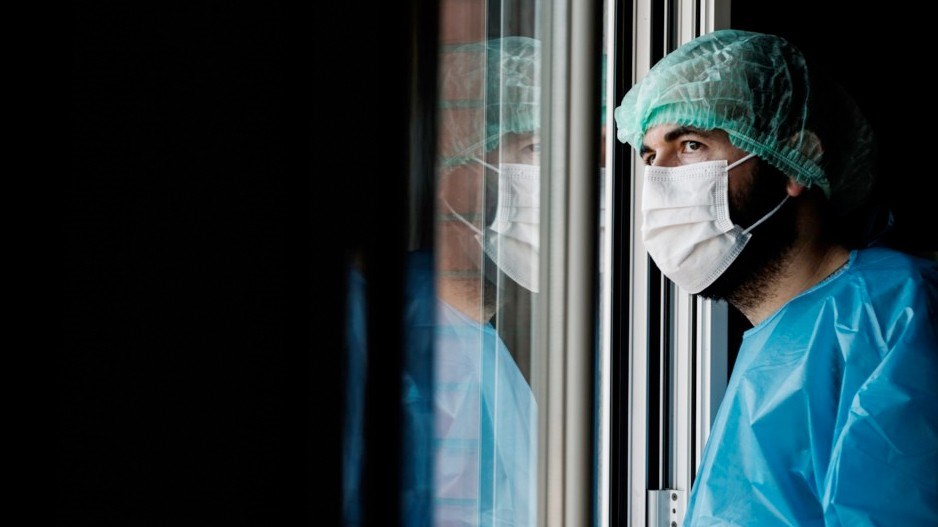When British Prime Minister Rishi Sanik pledged during his leadership campaign to address “woke nonsense,” Prime Minister Justin Trudeau came to mind – Canada’s architect of woke, hypocritical and sanctimonious as he is about his own agenda.
While woke can be noble, something radical is afoot that will test our country’s liberal values when it comes to our most vulnerable and marginalized populations.
Vancouver psychiatrist Dr. Peter Chan calls today the “calm before the inevitable storm.” In four months, the law that allows adults access to medically assisted death will extend to people whose sole condition is psychiatric.
When Canada legislated Medical Assistance in Dying (MAiD) in 2016, eligibility required one’s death to be reasonably foreseeable. In 2021, the program controversially expanded to include adults with no foreseeable death but who have physical conditions and disabilities.
That’s when Canada started grabbing international headlines for its “growing culture of death” and suggestion that some lives are unworthy. Even the United Nations warned of our deepening crisis. A UN human rights council appealed to the government to reconsider lax death laws that devalue and discriminate against the poor, elderly, and persons with disabilities, and cited potential violations of the Universal Declaration of Human Rights, the International Covenant on Civil and Political Rights, and the Convention on the Rights of Persons with Disabilities.
But Canada virtually ignored the letter and proceeded further down the rabbit hole, seemingly vying for the title of most woke – or alert – when it comes to death. Yes, the irony.
The federal government and its parliamentary committees believe if people with physical disabilities can seek assisted death, then so too should people with mental illness because barring access would be “discrimination.”
Dr. Chan, who helped author the Canadian Psychiatric Association’s (CPA) discussion paper on MAiD for mental disorders, believes Canada isn’t ready.
“Much of what is being proposed deeply concerns me and many other BC psychiatrists,” said Chan. “Unlike other countries, Canada doesn’t have rigorous safeguards or an oversight process with a board of specialized professionals to assess if psychiatric patients should qualify for assisted death. We would be relying on regional programs designed to assess physical conditions, not mental conditions.”
In the Netherlands, where psychiatric euthanasia has been practiced for 20 years, those seeking it are mostly women marginalized by poverty and trauma. Chan fears Canada will follow a similar path: “Administering MAiD would seem premature for people with disabilities and psychiatric conditions when the matter may be resolved by addressing poverty, loneliness, or a lack of housing.”
Many questions abound. How can someone with mental instability have decision-making capacity for the ultimate irreversible act? What about people with personality or mood disorders who have suicidal wishes that fluctuate? What about those for whom addiction is a compounding factor, like the Downtown Eastside community festering in a wholly broken system and largely ignored by the federal government.
And to the points raised by the UN, how will Canada determine if individuals voluntarily applied or were prompted by someone who views them as a burden on the healthcare system? What about the conflict-of-interest of allowing paid healthcare staff to act as “independent witnesses.”
Dr. Chan said a significant concern for psychiatrists is that there may be discrepancies in medical opinions when it comes to assessing someone’s mental condition as “irremediable,” which is a requirement for psychiatric euthanasia. And unlike anywhere in the world, Canada will permit assisted death for psychiatric patients who refuse treatment.
A recent case foreshadows the deepening crisis. In BC, a police investigation is underway after Donna Duncan was placed by court order into a psychiatric ward. Hospital officials released her, and within hours, she was euthanized, unbeknownst to her daughters.
Duncan’s treating doctor and psychiatrist had denied her MAiD request. Her daughters said she “shopped around” until she found a nurse practitioner and doctor to approve her request based on a physical condition that had never officially been diagnosed.
“Where are the safeguards that Canada claims to have?” said her daughter, Alicia. “We had no idea that Canada’s laws leave considerable room for interpretation by activist doctors.”
Statistics are troubling. According to Health Canada, MAiD assessors in most cases in 2021 didn’t review a patient’s medical records or consult with other health and social services professionals. And in only 14.3% of cases did an assessor have a previous, unrelated consultation with a patient. In other words, in 85.7% of cases, assessors had no historical medical context to make an informed decision. Of note, these stats appear to have been removed from Health Canada’s site.
I contacted Vancouver Coastal Health (VCH) about wait times. You can see a death assessor within two weeks or sooner “if someone is in an urgent state.”
A wait for a family doctor or psychiatrist is much longer.
Supporters of medically assisted death believe expunging persons with disabilities or mental illness is a greater show of human rights than advocating for people to access services and supports to live with dignity.
They have it backwards, which is no surprise since hypocrisy defines the extreme woke.
And as you process your shock, Canada is considering adding “mature minors” to the list of eligible – children as young as 12 with zero parental support required. Now that is woke nonsense.
Renu Bakshi is a former long-time journalist who now works as an international crisis manager and media trainer. She can be reached at [email protected]



